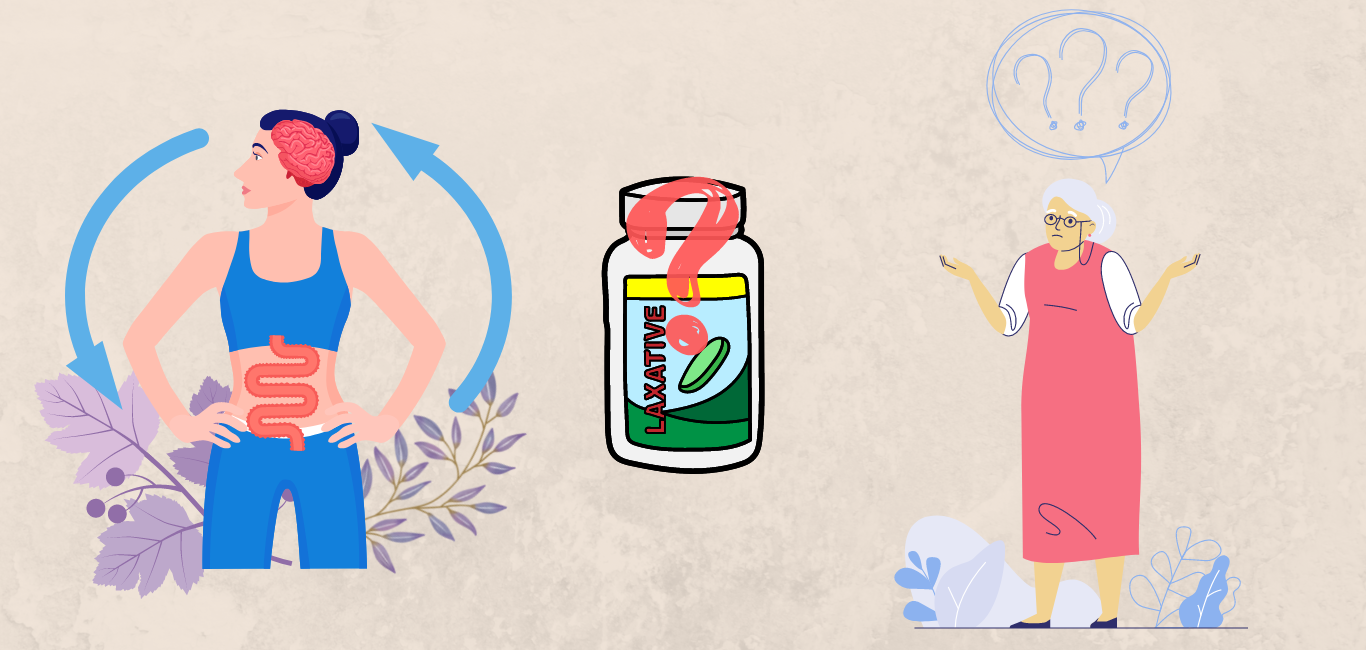
Constipation can be a bothersome and even debilitating issue that can disrupt daily life. Often, people reach out for over-the-counter laxatives for relief, unless the condition is severe.
However, a recent study in Neurology from the American Academy of Neurology found that people who frequently use laxatives may have a 51 per cent higher risk of developing dementia than non-users.
Possible causes of constipation include dehydration, medication side-effects, lack of dietary fibre, or an underlying medical condition. Hence, taking laxatives without addressing the cause could be counterproductive. Furthermore, excessive use of laxatives could also harm the gut lining and disturb the delicate balance of the gut microbiome.
The findings of this study add to the emerging knowledge of the gut-brain axis – the gut microbiome’s crucial role in brain health. For example, gut bacteria influence and mediate the production of neurotransmitters like glutamate and neuro-inhibitors like GABA.
“The findings of this study suggested that regular use of laxatives, even without short-term severe adverse events, may have the potential of long-term risk of dementia,” Dr Feng Sha, corresponding author of the study from the Shenzhen Institute of Advanced Technology at the Chinese Academy of Sciences in Guangdong, China, tells Happiest Health.
Uncovering the risk
The researchers utilised data from the UK Biobank, a biomedical database started in 2006, for the study.
They screened the medical data of 476,219 listed individuals and excluded factors such as alcohol consumption and environmental and lifestyle triggers that could lead to dementia. Subsequently, they identified 16,703 individuals who were regular laxative users.
The majority of the study group consisted of women, individuals from higher socio-economic status, and those with lower educational backgrounds. Additionally, the incidence of stroke, high blood pressure, depression and poor overall health were higher in laxative users than non-users. After 10 years, the researchers conducted a follow-up study to assess the brain health of the group. They found that 320 individuals who regularly used laxatives and 3,141 individuals who irregularly used laxatives developed some form of dementia.
The study took into account various over-the-counter laxatives, such as bulk-forming, stool-softening, stool-stimulating and osmotic laxatives, which hydrate the colon.
They observed that individuals who exclusively used osmotic laxatives, or a combination of two or more types of laxatives were at an increased risk of developing dementia.
“This study takes advantage of the sample size of the UK Biobank cohort and offers an important addition to the wealth of knowledge currently being generated within the gut-brain axis field,” comments Marta Camacho, research assistant at Cambridge Centre for Brain Repair, UK.
The link between laxatives, gut and brain
An imbalance in the gut microbiota can lead to toxin build-up in the intestine, which causes inflammation. Previous research has shown that inflammation caused by gut dysbiosis has a link to inflammatory responses in the brain.
Metabolites such as lead, ethanol and nitric oxide are toxic to the neural system. Laxatives can cause further damage when they compromise and inflame the gut lining, as the metabolites produced in such conditions can aggravate the inflammation.
The paper’s authors suggest that when the gut lining is compromised and the barrier integrity decreases, microorganisms can reach the brain.
“Use of over-the-counter laxatives is common in the general population. The microbiome-gut-brain axis hypothesis suggests the use of laxatives is associated with dementia. Laxatives may also disrupt intestinal epithelial barrier and facilitate passage of gut microbial-derived neurotoxic metabolites into the central nervous system,” according to Dr Sha.
He adds that dysbiosis in the gut due to laxatives could cause the production of a toxin called trimethylamine N-oxide (TMAO) and its entry into the blood. This is related to thrombosis, vascular inflammation, and atherosclerosis contributing to stroke and vascular dementia.
Read more: New Alzheimer’s study zeroes in on a gut-brain genetic nexus
Read more: A `gut-sy’ solution to post-stroke cognitive decline
Today’s actions, tomorrow’s results
However, Camacho points out that previous studies from her research group and others have found a distinct link between constipation and dementia, and avoiding laxatives altogether is not advised.
Dr Sha adds, “Instead of regular use of laxatives, constipation can be mitigated most of the time by lifestyle changes, such as increasing fluid intake, dietary fibre, and activity levels, which may also benefit brain health.”
The researchers emphasise that the study does not establish a cause-and-effect relationship between laxatives and dementia. However, they plan to conduct further research to explore how the use of laxatives affects the outcome of stroke, depression, and Parkinson’s disease. They also aim to collect more information on the dosage of laxatives used during the study.
Camacho suggests that further studies are needed. Factors such as the type of constipation, dosage frequency, and effectiveness, were not included in the current study and require further investigation.
“Genetics and age are known risk factors for dementia, but, at the moment, there is little we can do to modify them, so studies looking at modifiable risk factors of dementia, such as over-the-counter medication, are incredibly important as they offer hope to those at high risk,” says Camacho.
Read more: Here is how you can deal with constipation using holistic ways

















